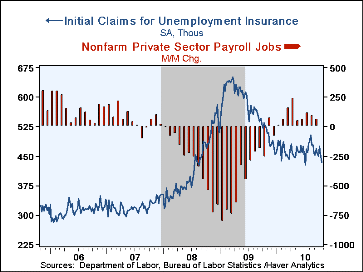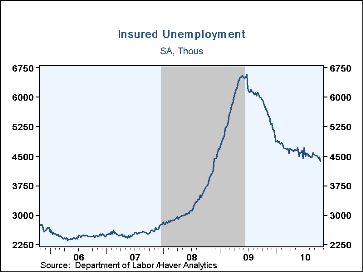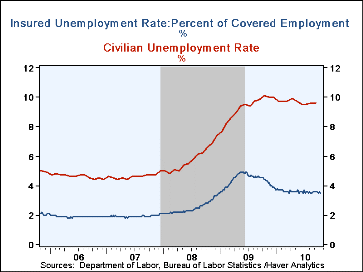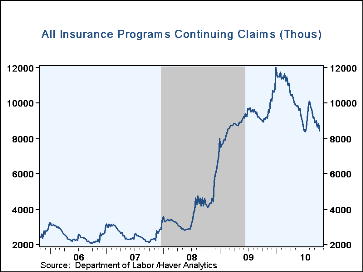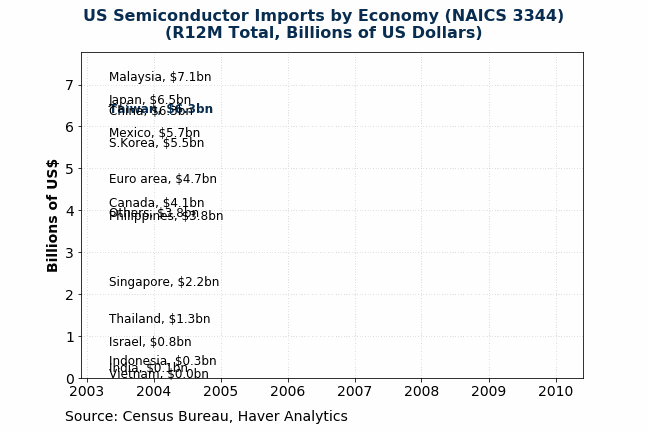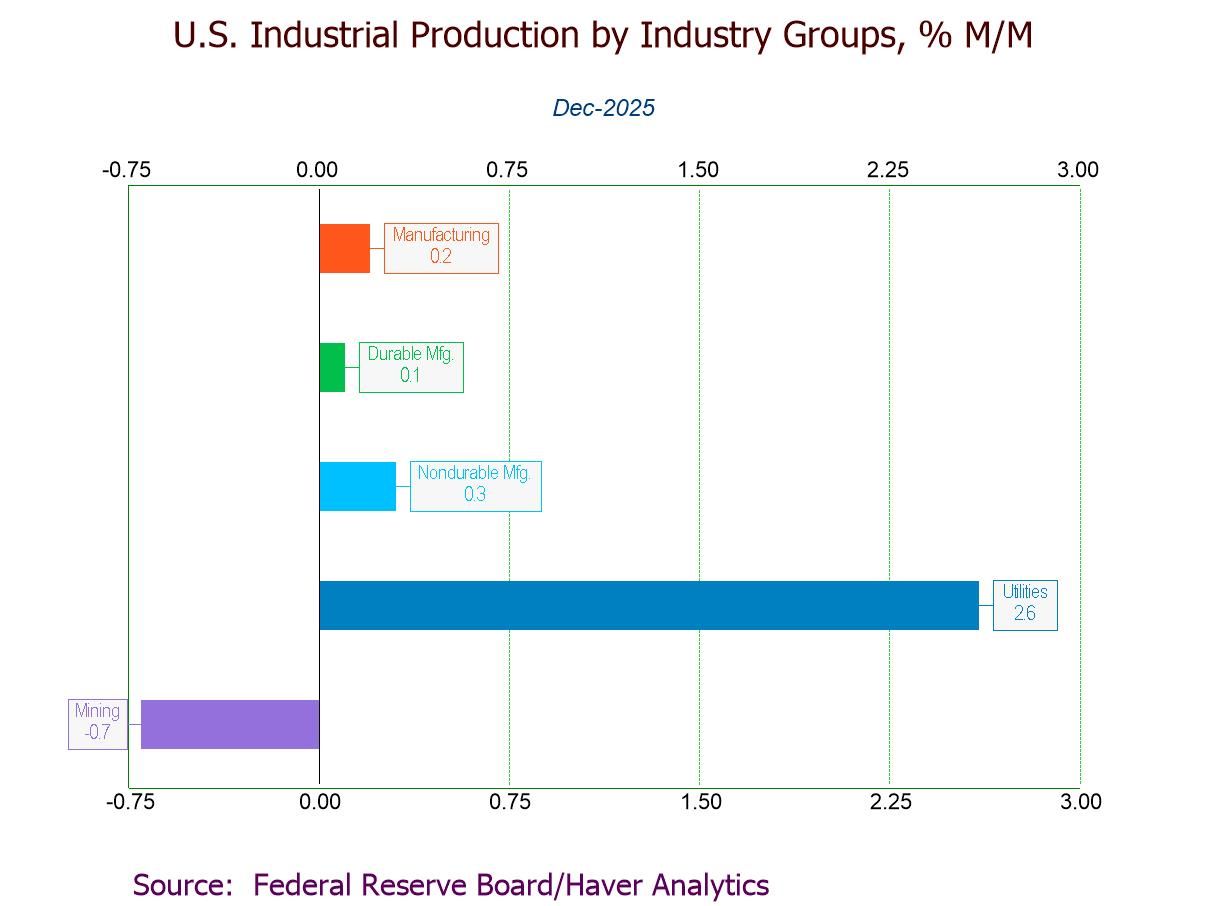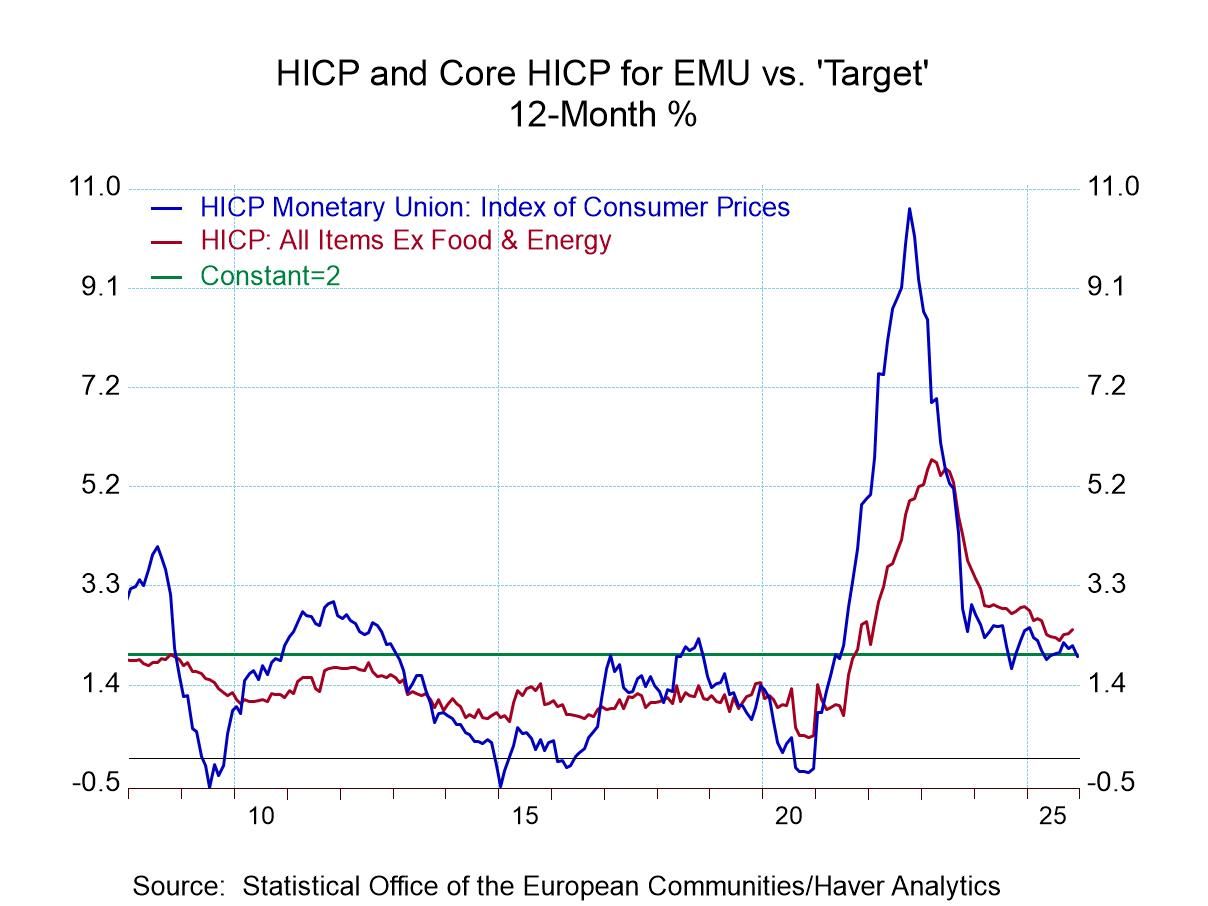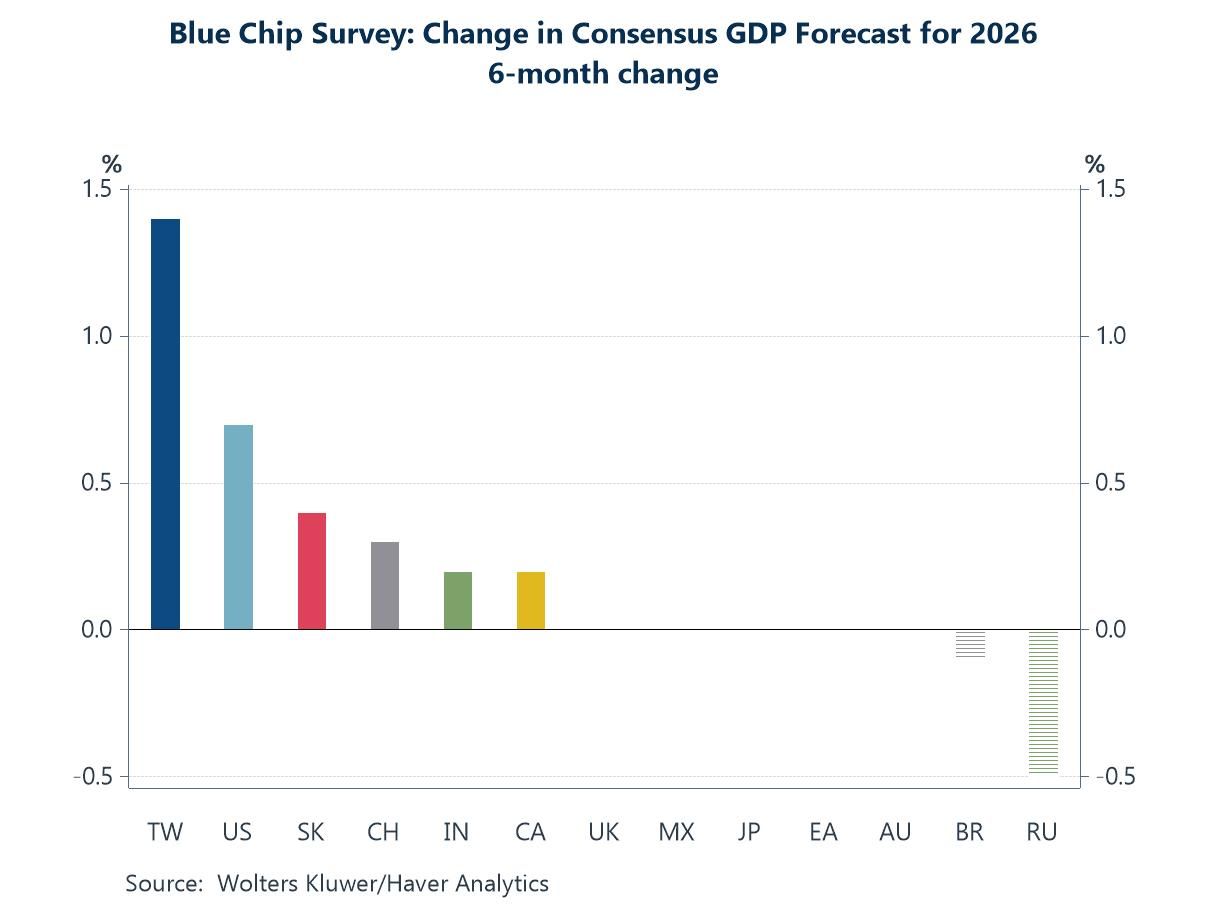 Global| Oct 28 2010
Global| Oct 28 2010U.S. Weekly Claims For Jobless Insurance Fall To Lowest Since July
by:Tom Moeller
|in:Economy in Brief
Summary
Initial claims dropped sharply last week to 434,000, the lowest level since early-July. It's happened before. Initial claims for unemployment insurance would fall sharply, suggesting labor market improvement, only to subsequently [...]
Initial claims dropped sharply last week to 434,000, the lowest level since early-July. It's happened before. Initial claims for unemployment insurance would fall sharply, suggesting labor market improvement, only to subsequently reverse course. Is this latest decline the real thing or déjà vu all over again? Most forecasters suggest little pending labor market improvement and rely more on the trend in claims to provide clues. The latest claims figure declined from 455,000, roughly where it stood during the prior week. The 4-week moving average fell slightly to 453,250 but the latest weekly figure was below Consensus forecasts for 455,000 claims.
Continuing claims for state-administered programs slipped in the latest week to the lowest level since late-2008. The associated unemployment rate slipped to 3.5%, but like during earlier periods, the previous figure was revised up. Therefore, the sideways trend movement since March continued. The most that can be observed is a slight downward tilt to the numbers. These claimants are, however, only about half of the total number of people currently receiving unemployment insurance. Regular extended benefits, with eligibility dependent on conditions in individual states, fell to 875,591 on October 9, the latest figure available. In July, the Congress renewed the special Emergency Unemployment Compensation program referred to as EUC 2008. By October, it had a sharply reduced 3.782 million beneficiaries. It will now accept claims through November 30 and will be continuing to pay out benefits until April 30, 2011. Are these declines indicating real labor market improvement or, instead, an exhaustion of benefits? It's best to watch initial claims for clues.
Haver Analytics calculates a grand total of all claimants for unemployment insurance. This series includes extended and emergency programs as well as selective programs for railway employees, recently discharged veterans and federal employees. All together, on October 9, the total number of recipients was 8.456 million, off 5.4% y/y and down from the early-January high of 11.989 million. These data are not seasonally adjusted.
Data on weekly unemployment insurance programs are contained in Haver's WEEKLY database and summarized monthly in USECON. Data for individual states, including the unemployment rates that determine individual state eligibility for the extended benefits programs and specific "tiers" of the emergency program, are in REGIONW, a database of weekly data for states and various regional divisions.
| Unemployment Insurance (000s) | 10/23/10 | 10/16/10 | 10/09/10 | Y/Y % | 2009 | 2008 | 2007 |
|---|---|---|---|---|---|---|---|
| Initial Claims | 434 | 455 | 475 | -17.8 | 572 | 419 | 321 |
| Continuing Claims | -- | 4,356 | 4,478 | -24.9 | 5,809 | 3,340 | 2,549 |
| Insured Unemployment Rate(%) | -- | 3.5 | 3.6 | 4.4 (10/09) |
4.4 | 2.5 | 1.9 |
| Total Continuing Claims* (NSA) | -- | -- | 8,456.6M | -5.4% | 9.085M | 3.884M | 2.584M |
* Calculated by Haver Analytics, as the sum of regular state programs, extended benefits, federal employees, veterans, railroad retirement board
Tom Moeller
AuthorMore in Author Profile »Prior to joining Haver Analytics in 2000, Mr. Moeller worked as the Economist at Chancellor Capital Management from 1985 to 1999. There, he developed comprehensive economic forecasts and interpreted economic data for equity and fixed income portfolio managers. Also at Chancellor, Mr. Moeller worked as an equity analyst and was responsible for researching and rating companies in the economically sensitive automobile and housing industries for investment in Chancellor’s equity portfolio. Prior to joining Chancellor, Mr. Moeller was an Economist at Citibank from 1979 to 1984. He also analyzed pricing behavior in the metals industry for the Council on Wage and Price Stability in Washington, D.C. In 1999, Mr. Moeller received the award for most accurate forecast from the Forecasters' Club of New York. From 1990 to 1992 he was President of the New York Association for Business Economists. Mr. Moeller earned an M.B.A. in Finance from Fordham University, where he graduated in 1987. He holds a Bachelor of Arts in Economics from George Washington University.


